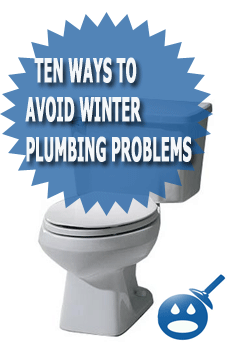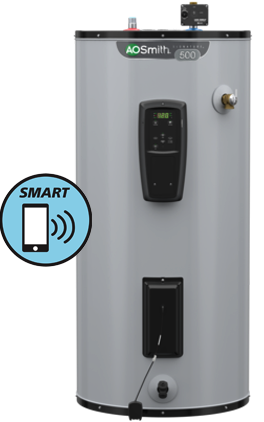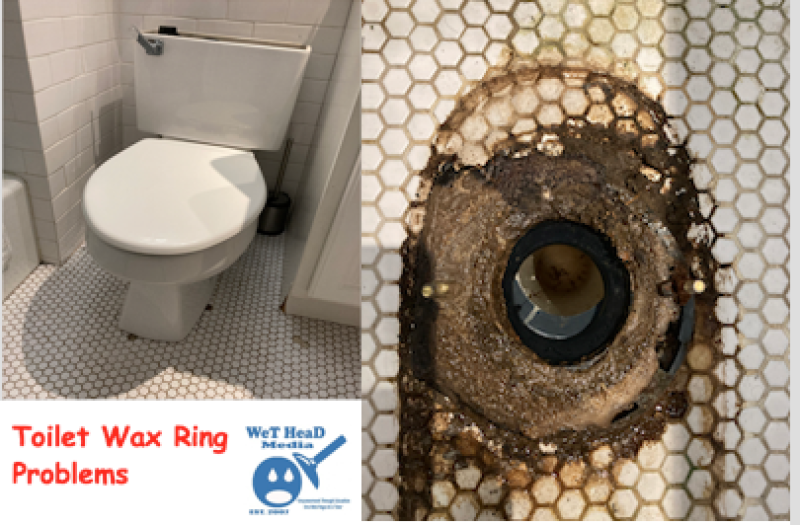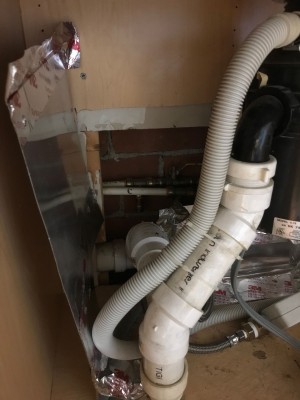Ten Ways To Avoid Winter Plumbing Problems
The winter months can be very harsh on your plumbing causing you to spend up to thousands of dollars on unnecessary plumbing repair. With the proper plumbing preventive maintenance these plumbing problems and repairs can be avoided. Depending on where you live, different levels of winter plumbing protection may be needed due to colder temperatures in some regions.

Protecting your plumbing can be done with some common hand tools as well as some plumbing supplies that you can buy online or from a local supply house. These items can cost as little as $6.99. That sure is better then a $150 or more service call from a plumber. These are the most common plumbing problems you will run into during the winter and some simple solutions to help you avoid each plumbing problem.
How To Protect The Outside Wall Kitchen Sink From Freezing:
Many builders often place the kitchen sink on the outside wall of the home so that you can see out of the window while doing dishes or using the sink. The problem is that the outside wall can get colder then most inside walls and there is a chance your plumbing could freeze. On new houses the plumbing is brought in from the bottom of the cabinet, but on many homes the water lines are actually on the outside wall of the house.
If your water lines are freezing or they did last year and you want to avoid the problem over the winter you can by doing a few things. The first thing you will want to do is to open the cabinet door all the way letting the inside room temperature flow inside the cabinet. This will work for many homes, it may look ugly because the door of the cabinet is always open but the warn inside air will prevent the pipes from freezing. If that does not work you could always place a portable space heater near the open door so that more hot air can keep the water lines warm. When the summer comes around you should remove the cabinet and insulate the lines with heat tape or better pipe insulation.
How To Prevent A “No Heat” Call On Your Boiler Or Furnace:
The best way to protect the health of your furnace or boiler is to have it serviced by a licensed plumbing and heating professional. Not only will this ensure that you have warm heat all winter long, but it also can prevent expensive repairs down the road due to lack of preformed service. A tune up for your oil or gas fired unit can really affordable compared to loosing the heat for the night.
How To Prevent Your Sewer Line From Backing Up:
One thing that commonly happens over and over again is that homeowners fail to remember to check the levels of there septic tank before the winter time causing an expensive service call from a plumber. It is always best to have your septic tank treated and pumped out before the winter time. If you wait until the septic tank becomes overfull, you not only can cause a stoppage in the main line but it will be more expensive for the plumber to dig though all that frozen ground and snow to access the cesspool and lines if they need to be repaired. So make sure to have your septic tank or cesspool checked before it gets to cold.>
How To Prevent Your Oil Lines From Freezing:
Another common problem during the coldest times of winter is oil burner tank lines will freeze because of water that is in the fuel. There is two ways to protect against this. The first thing you will want to do if your oil lines are exposed to the outdoor weather is to insulate them with the pipe insulation. If you have already insulted your oil lines, you will want to remove any sludge and water from your oil tank. You will want to call an oil heating professional to do so as this can be a very messy job.
How To Keep Your Water Heater Hot All Winter Long:
One of the most common plumbing DIY searches is “how to change a water heater element”. This is a common part that often will break at any given time but generally will not be noticed until the temperature outside drops to around freezing. What usually happens is that one of the elements goes bad and you wont have as much hot water, but being it was summer your showers were longer and much colder then in the winter. So when you now enter into winter you will notice that you have less how water. This could be one of two things. Once of your heating elements could be bad or you just need to raise the temperature of the water heater.You should always have your water heater checked by a licensed plumber before the winter time.
How To Prevent Your Pipes From Making Noise:
Whether you have steam or forced hot water powered by oil or gas you can still have noisy pipes all winter long. Your noisy pipes could be happening for a number of reasons. If you have slant fin baseboard heat it could have been installed wrong and you might just have to adjust the clips on the elements. If you have steam heat you could be experiencing water hammer and could have bad steam traps. It is always a good idea to have a heating professional come in and inspect the whole heating system before the winter, but if you have not done so you still have plenty of time and its never to late.
How To Prevent Exposed Pipes From Freezing:
Over and over and practically ever winter millions of plumbing pipes freeze and bust due to improper installation or the lack of protection that was needed. If you have pipes that are exposed to winter elements you will want to first insulate them with pipe insulation and then seal all seams with tape to prevent wind from blowing in. In areas that get extremely cold you can also use something called heat tape to prevent the pipes from freezing. Heat tape is wire that wraps around pipes and then gets plugged into a wall to keep the pipe nice and warm. Heat tape is not that expensive and is a remedy for avoiding those costly repairs to frozen pipes.
How To Winterize Plumbing Fixtures Not In Use:
If you have an outside bathroom or plumbing fixtures that are exposed to temperatures that are below freezing you will want to do something called winterizing to prevent them from freezing and cracking. You will want to first shut the water supply off to the fixture and then you will want to drain all the water from the basins or tanks. For example if it was a toilet you would empty the tank.
Once you have drained the water you will want to remove the p-trap from the fixture and empty the water from it, and once you do you can re-install the p-trap and re-tighten it. Now that the water is drained from the fixture and the faucet you can add a non toxic anti-freeze to the tanks and traps for that extra level of freeze protection.
How To Blow Out Water Lines From Freezing During Winter:
If you have an outside bathroom, pool slide , or even a irrigation system that is in need of blowing the water from the lines you can either use a air compressor if you no what you are doing or you can hire a licensed professional to do the job for you. Although its not recommended for you to try to blow out your own sprinkler lines it can be done with a high CFM air compressor which is much bigger then the average homeowner or center will have. If you you are blowing out swimming pool lines or other short runs you can use a smaller air compressor with a low psi so you don’t wind up popping fittings apart with t much air pressure.
How To Prevent Outdoor Faucets and Spigots From Freezing:
One of the most common things people do is leave there outside garden hose attached to the outdoor hose bib and then the winter comes , the garden hose freezes and sure enough so does the spigot. There are a few ways to avoid this all together. The first way is to always remove your garden hose before it starts to freeze. The second thing you should do if you do not have isolation valves installed already is to have a licensed plumber install isolation valves in the basement or crawl space so that the water to the hose-bib can be shut off from inside. If you already have valves you can just simply close them and then open the spigot outside to drain the rest of the water.
If you want to take it a step further you can install frost free hose bibs that are equipped with a long valve body that extends through into the inside of the house or building so the water does not freeze. These valves are a lot more money then the average hose bib but well worth the price just for the piece of mind.
These are the ten most common plumbing problems that happen over the course of the winter. Some of these you may want to tackle yourself so you learn ways to save money on your plumbing repairs, but other things may just require help because if limited knowledge or tools you might have. It is very important to remember that it is OK to hire a professional when needed. It is also a very good idea to make sure that they have a license , insurance and a good track record. One other thing to remember is that you will also want to get three written estimates to get the best price.



